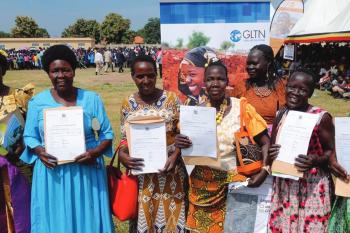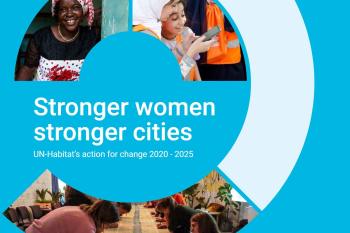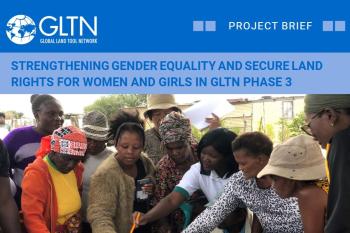
Read More
Gender Strategy for Land-at-Scale Uganda
Women’s Land Rights (WLRs) are fundamental human rights, foundational to gender equality and women’s dignity and instrumental in improving food security, effective climate action, poverty eradicati

UN-HABITAT recognises the need for better knowledge compilation and exchange on land issues and harmonisation alignment coordination (HAC). Through the Global Land Tool Network initiative UN-HABITAT commissioned this case study on institutional harmonisation in the Kenyan land sector. The objectives of the study were to chronologically document institutional harmonisation processes in the Kenyan land sector between 2003 and 2007, to describe challenges experienced and to analyse the roles of different partners as well as the methodologies and tools used to foster HAC processes.
The analysis of tools was carried out considering GLTN core values such as gender, equity, governance, affordability and a pro-poor orientation. The study provides recommendations for future activities in the Kenyan land sector. It also gives options for UN-HABITAT and the GLTN to strengthen HAC processes in member countries. The study’s findings and recommendations also inform the development of guidelines for institutional harmonisation processes, which will be disseminated by the GLTN among network members.

Women’s Land Rights (WLRs) are fundamental human rights, foundational to gender equality and women’s dignity and instrumental in improving food security, effective climate action, poverty eradicati

This publication presents a summary of UN-Habitat’s gender equality impact over the past five years, in line with the Beijing reporting cycle.

GLTN’s institutional commitment to gender equality and secure land rights for women and girls has been at the core of its work since inception in 2006.